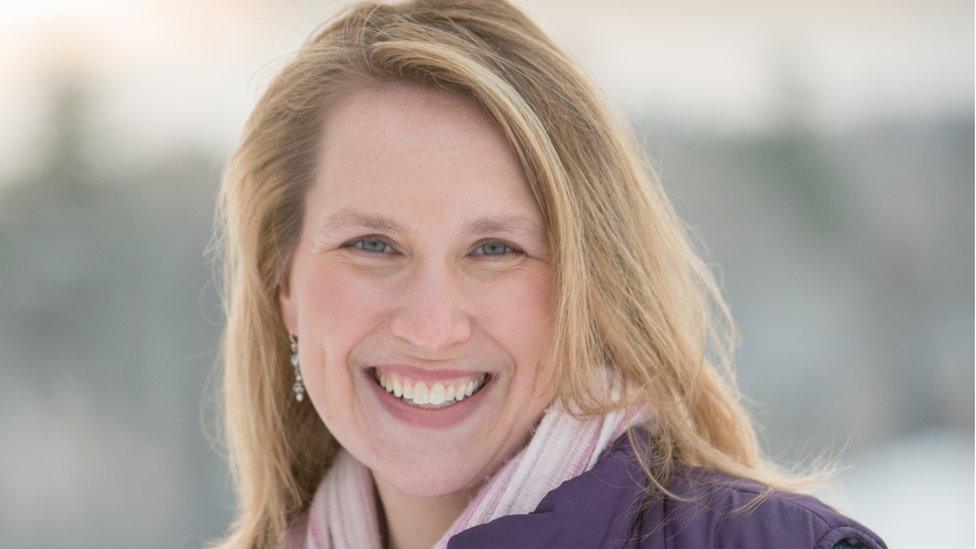Eating disorder sufferers: Hollyoaks bulimia storyline an 'eye-opener'
- Published
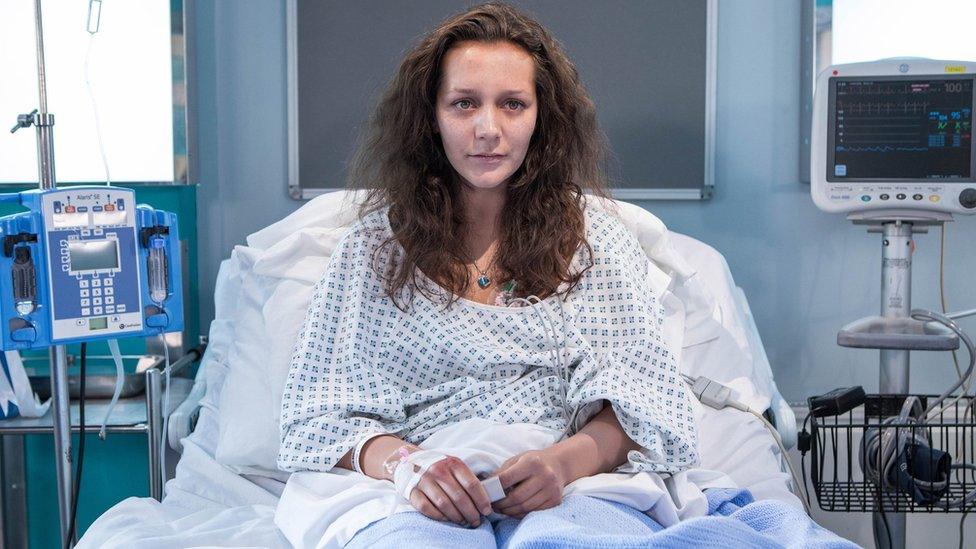
Hollyoaks character Cleo, whose struggle with bulimia came to a head in an episode in October
Calls to the eating disorder helpline Beat have shot up, after Hollyoaks aired a storyline involving a character with bulimia.
More people contacted the charity in October than in any other month ever, the charity said - and it thinks the Channel 4 soap had a "significant impact".
People with eating disorders have praised the show for the "hard-hitting" episodes, which saw character Cleo collapse with a heart attack after suffering from the illness.
"The story of Cleo is probably one of the most accurate portrayals of bulimia I've seen," said Praise Lawal-Okeowo, 18, from London, who is in recovery from bulimia herself.
"Her eating disorder wasn't at all glamourised, which is what the media often tends to do. Her lips were crusted, her hair was frail.
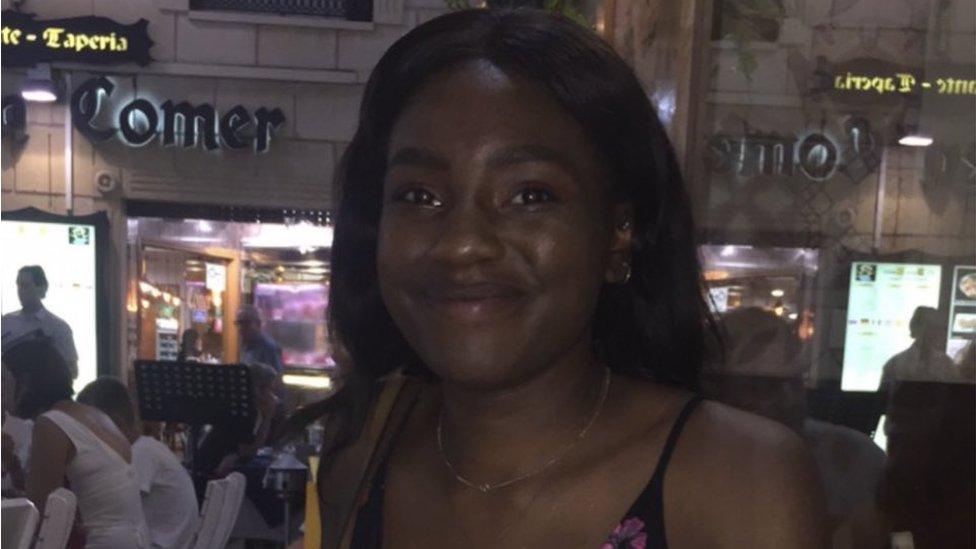
Praise, 18, from London, says Hollyoaks portrayed the seriousness of bulimia
"What struck me most was when she was sitting in her living room and eating the sausage roll," she added. "It was the look in her eyes like she'd turned into someone else because she'd been restricting so much."
Praise, who was hospitalised because of her eating disorder, added: "My experience was similar to Cleo's by how she blamed others for her bulimia, never accepting that it's no one's fault but just a disorder that can occur from a build-up of underlining trauma in your life.
"Cleo hiding food, the binging, purging, restricting, baggy clothes, over-exercising and saying it's 'healthy' and 'good for me' even though it's another form of restriction.
"Refusing help or lying about seeking help. On her wedding day her having to clean her teeth from the stains of purging, which similarly I've ruined my teeth and had to have fillings."
She said people suffering from bulimia may spot traits in the TV character that they recognise in themselves, possibly sparking them to seek help.
"With Cleo's storyline, I think Hollyoaks have covered every single aspect of bulimia and it could help people now suffering and know how to seek help," she said.
Chloe Marsden, 21, agreed that the soap's storyline could be an "eye opener" for viewers, adding: "It was probably what I needed when I was younger."
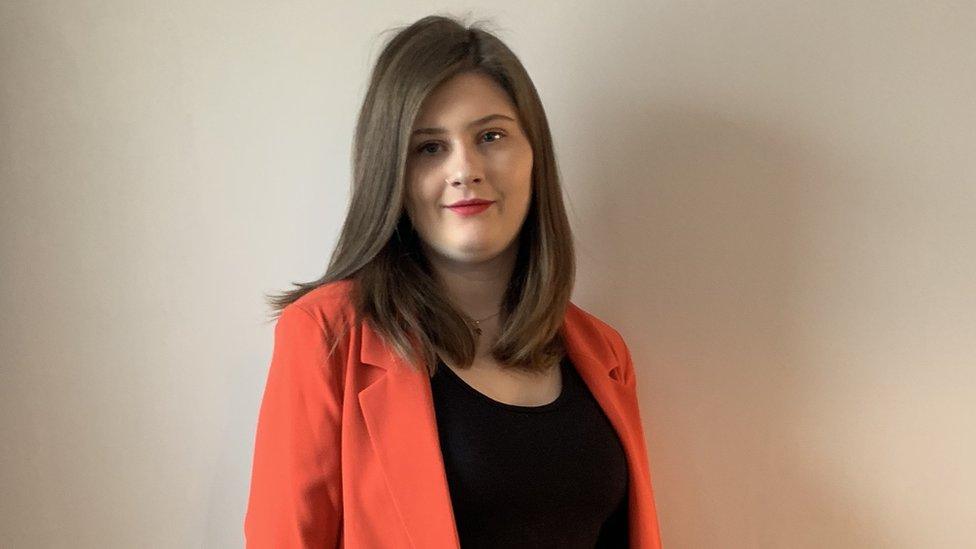
Chloe, 21, said friends of hers have died as a result of eating disorders
Chloe, who is from Leicester, was diagnosed with anorexia aged 14 and was hospitalised two years later.
"I had low potassium and was on the edge of a heart attack, like Cleo," she said.
"I really related to [Hollyoaks]. Everything that she did was what a person with an eating disorder does. It was like looking through my own eyes.
"Cleo's trigger was her boyfriend abusing her, mine was bullying."
Chloe, who writes a blog about her illness, has now been in recovery for two years although she said she still struggles now.
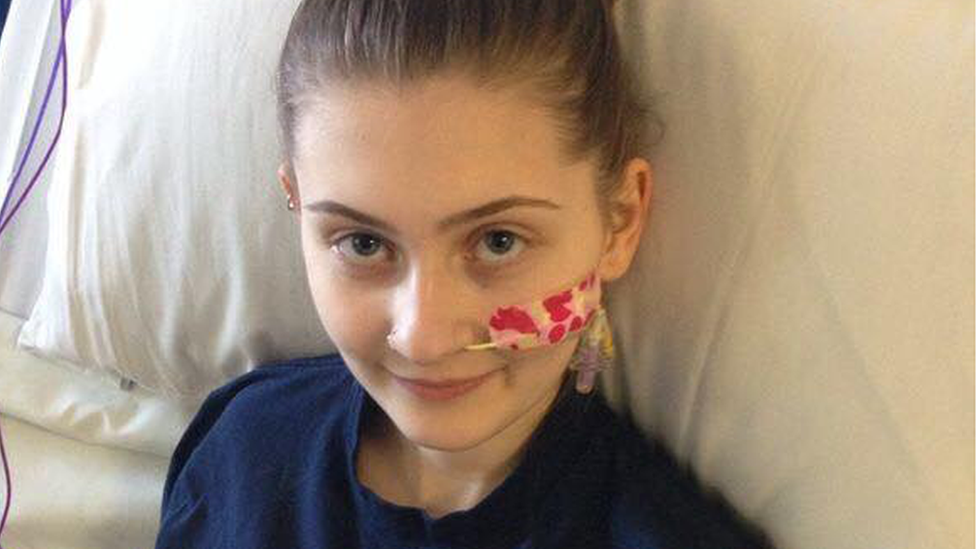
Chloe spent time in an eating disorder unit for 10 months
She added that it is important to raise awareness of the seriousness of the illness, adding it is "one of the biggest killers" in mental health.
Tom Quinn, the director of external affairs at Beat, explained that the charity worked with Hollyoaks closely when writers were creating the script for Cleo's storyline.
Of the rise in calls to the helpline, he said: "I don't think we can say the rise is just because of Hollyoaks; our general trend is up although that doesn't mean every month is higher than before.
"But I definitely think Hollyoaks was really effective in raising awareness and I think we can be pretty confident it had a significant impact in more people contacting the helpline than ever before."
He said raising awareness is really important - but also making sure content is not triggering to sufferers.
"We want to be real, we don't want to be triggering," he added.
Beat offers two helplines - one for adults: 0808 801 0677 or email help@beateatingdisorders.co.uk and one for young people: 0808 801 0711 or email fyp@beateatingdisorders.org.uk
- Published26 February 2018
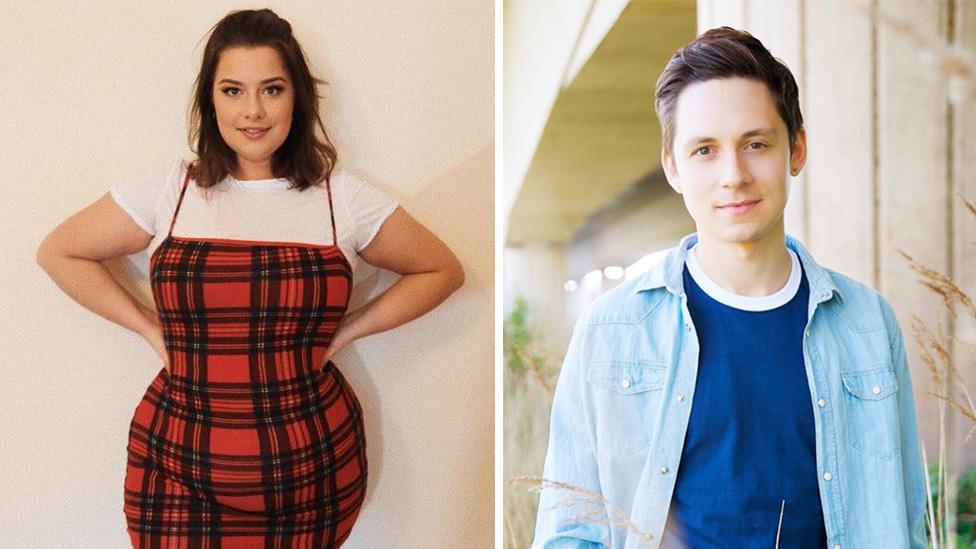
- Published26 February 2018
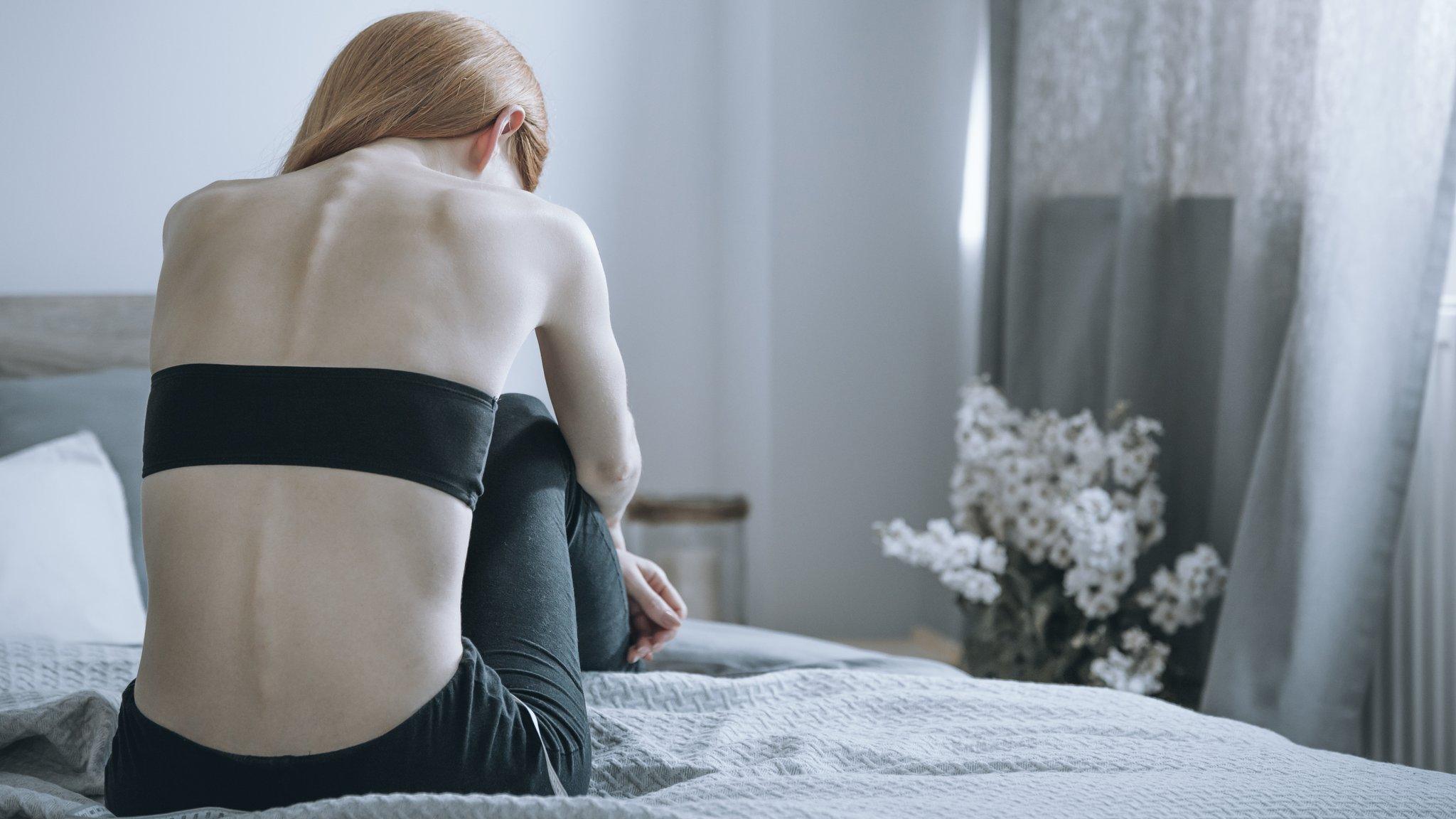
- Published29 September 2018
